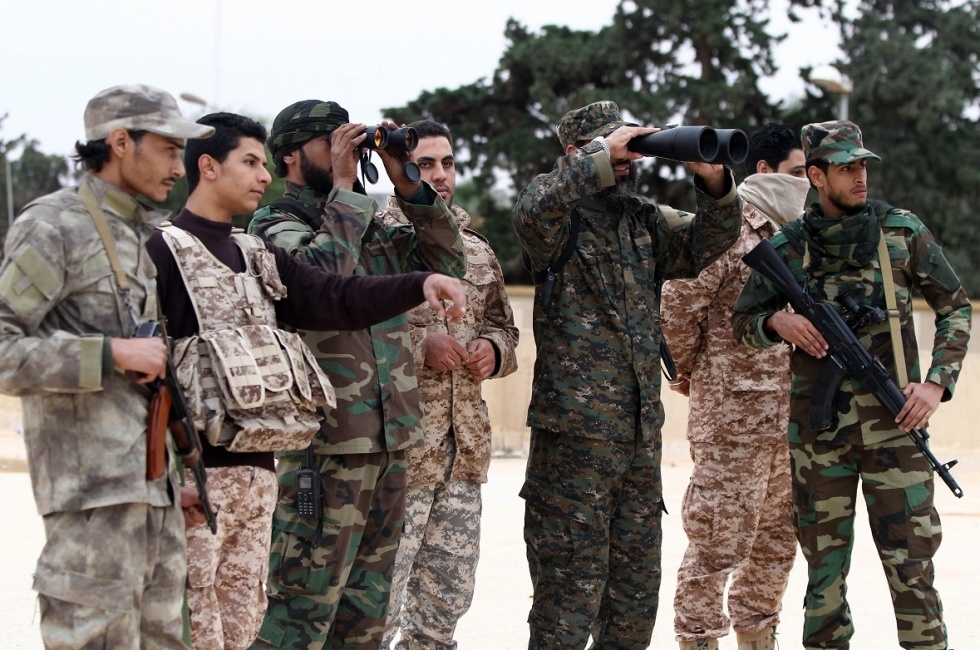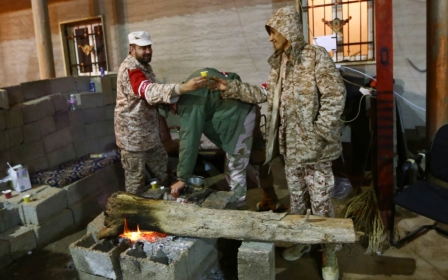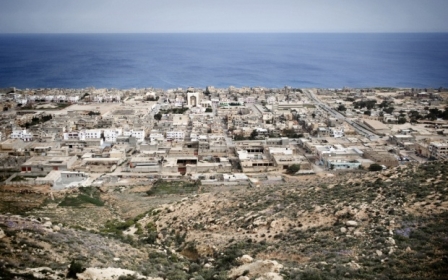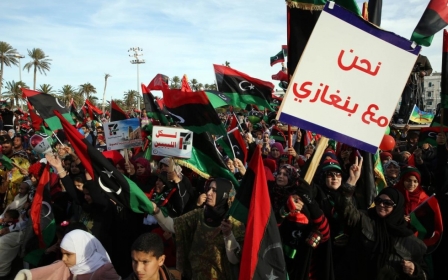Libya's HoR creates 'army chief post for Haftar'

Libya's Tobruk-based parliament created a new army chief post on Tuesday, with a lawmaker and state media saying the job will go to retired General Khalifa Haftar, in a move that is likely to further antagonise the country's rival Tripoli-based parliament.
"The chamber (of deputies) adopted today a law regarding the general leadership of the Libyan army," calling on House of Representatives (HoR) speaker Aguila Salah Issa to name a chief, MP Issa al-Aribi told AFP.
Another MP said the law was adopted to "legitimise" Haftar, who calls himself chief of the Libyan National Army (a militia), and that he would be formally named in the "coming hours."
That was echoed by the Libya news agency LANA.
Last May, Haftar launched an offensive against Islamists in the country's east, earning himself the sobriquet of "rogue general" and being accused by the then government of trying to stage a coup.
But the Tobruk-based HoR parliament and its allied government have gradually allied themselves with him.
Last month, they formally requested that he and 129 other retired officers return to active service.
On Monday, HoR suspended its participation in UN-brokered talks on the future of the war-wracked north African state, and a formalisation of Haftar's status could further complicate those efforts.
Fajr Libya, the coalition of fighters that seized Tripoli and backs a rival government there against the one in the east, has rejected any political settlement that includes him.
The international community faces a daunting task to find a political solution to the lawless nation's political and military crisis.
Since the 2011 overthrow of dictator Muammar Gaddafi in a NATO-backed uprising, Libya has been awash with weapons and opposing militias are battling for control of its cities and oil wealth.
GNC backs 'unconditional dialogue'
Meanwhile, a representative of the GNC on Tuesday urged the country's political factions to engage in dialogue without making threats or setting any preconditions.
At a Tuesday press conference, Saleh al-Makhzoum, who heads the GNC's delegation to the UN-sponsored dialogue, said the UN mission in Libya had postponed the dialogue until further notice.
"We will participate in upcoming [dialogue] sessions as the solution to Libya's political crisis must be a political one," al-Makhzoum said.
A fresh round of dialogue between Libya's warring factions had been scheduled for Thursday in Morocco, sources from both the GNC and HoR had told the Anadolu Agency earlier.
Al-Makhzoum said the GNC had "proven its desire to enter talks and find a peaceful solution [to Libya's political crisis] while the other party [HoR] is trying to drag the country… away from peaceful dialogue."
He went on to urge the international community to "recognise the legitimacy of the GNC in accordance with the ruling of the Supreme Court [in Tripoli], which deemed the electoral law under which the House of Representatives was elected to be unconstitutional and ordered its dissolution."
Middle East Eye propose une couverture et une analyse indépendantes et incomparables du Moyen-Orient, de l’Afrique du Nord et d’autres régions du monde. Pour en savoir plus sur la reprise de ce contenu et les frais qui s’appliquent, veuillez remplir ce formulaire [en anglais]. Pour en savoir plus sur MEE, cliquez ici [en anglais].




